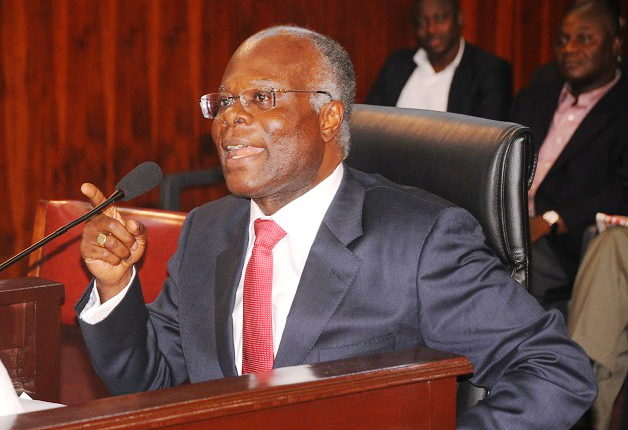The Adansi-Asokwa MP, K.T. Hammond, has said he and some of his fellow MPs are very worried because of the potential pitfalls the Right to Information (RTI) Bill in its current form presents.
“I am very very worried. It has potential banana skins and we have got to look at it pretty carefully and some of us are petrified. I am very uncomfortable,” the MP told Citi News.
The RTI Bill is expected to increase the access of citizens to public information, but it has been in and out of Parliament for about 18 years without passage.
He said he was particularly concerned with clause 17 of the Bill, which he described as “the most dangerous clause of all the clauses.”
The clause 17 allows the release of exempt information if the information being requested will reveal evidence of failure to comply with the law, risk to public safety, a miscarriage of justice, an abuse of authority or deregulation of official functions.
The clause also mandates the disclosure of the exempt information if the disclosure clearly outweighs the harm or danger that the disclosure will cause.
Because of these concerns, Mr. Hammond said “we will do our best. We will go through but nobody is going to rush.”
“In opposition, I held the same view. The very last minute when the NDC government wanted to rush it through Parliament, we made sure we stood firm and made sure that we did the right thing… we are going to make sure we in government will do the right thing making sure it goes its normal course.”
Recently, some members of Ghana’s media fraternity formed a coalition to push for the passage of the Bill.
Known as the Media Coalition on RTI, the group said it is determined to embark on a series of action, including demonstrations, to force the passage of the Bill into law.
The coalition planned to protest in Parliament on Tuesday but was denied entry into Parliament.
Other observers have accused successive governments of paying lip service to ensure the passage of the Bill.
The most recent assurance came from the Speaker of Parliament, Prof. Mike Oquaye, who expressed confidence in the ability of the house to pass Bill in the final session of 2018.
About the RTI Bill
The RTI bill is a fundamental human right guaranteed by the country’s 1992 Constitution and recognised as a right under International Conventions on Human rights.
The Bill as it has been drafted is to give substance to Article 21 (1) (f) of the Constitution which states that “All persons shall have the right to information subject to such qualifications and laws as are necessary for a democratic society.”
The Right to Information Bill was first drafted in 1999 under former president, Jerry John Rawlings.
Various advocacy groups emerged to press for the immediate passing of the bill into law in 2002 and reviewed in 2003, 2005 and 2007.
The National Democratic Congress (NDC) in 2008 and 2012 election manifestos promised to pass the Bill.
In 2010, it was presented to Parliament for consideration.
In 2011, the government signed unto the Open Government Partnership (OGP) Initiative with a commitment to pass the law. Then in November 2013, the Bill was formally laid before parliament.
Former Attorney General, Deputy Dominic Ayine in 2015, moved the Bill for second reading in Parliament.
In October 2016, the Bill was withdrawn and replaced with a new one which was immediately laid.
Following the dissolution of the Sixth Parliament of the Fourth Republic and the swearing-in of new Parliament in January 2017, the Bill had to be re-laid by the new government before work commences on it.
source: citinewsroom















